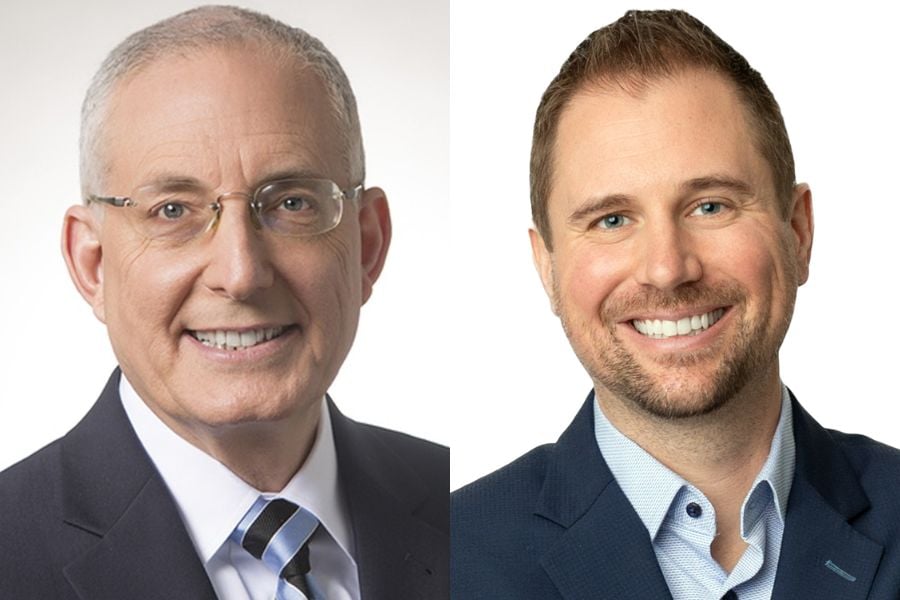

Financial advisors often focus on investment management and portfolio growth. However, one of the most impactful ways to serve clients is through proactive tax planning.
A recent study from Herbers & Company Service Market Growth highlighted a significant gap between what clients want from their advisors and what they're receiving. Unsurprisingly, tax planning topped the list.
The complexity of ever-changing tax regulations, like the SECURE Act and Secure 2.0, can be daunting, but mastering this knowledge is essential for advisors who want to provide true value to their high-net-worth clients. Even a single mistake on an IRA rollover can devastate a client's retirement savings.
Industry tax expert Ed Slott and California-based founder and CEO of Alison Wealth Management, and president and founding partner of Prosperity Capital Advisors Dave Alison, emphasized in a recent webinar that advisors should shift their mindset from letting required minimum distributions (RMDs) control the plan to using tax planning to maximize distributions while rates are low.
“One of the things that I've been able to do in my practice and what we teach in the tax management journey is help our clients zoom out,” Alison says in the webinar. “It's not about taxes each and every year, it's about your lifetime tax liability.”
“As we know with these IRAs, taxes are not just prevalent throughout their life. They haunt them even upon their passing. And for the beneficiaries, the rules are even more complex than they've ever been,” he added.
Slott was quick to point out near the top of the webinar that a rollover gone wrong can empty a client's IRA.
“We've seen that happen. We see cases like this all the time. The rules are constantly changing and it's ridiculous how complex it is,” says Slott. “The clients who are at high risk are the people who have saved the most in tax deferred accounts, [like IRAs and 401(k)s]. Those are the people you have to get conversations started with to start bringing these balances down.”
Slott’s main message to the 1,000-plus attendees on the webinar was to “ignore RMDs.” RMDs shouldn’t control the tax planning, the tax planning should be controlling the distributions, Slott explains.
“When did taking just the minimum really help anybody in anything?” he asks.
He points to a credit card bill with a $41 minimum payment, as an example. “That might be a great deal until two or three months go by and now you owe $10,000. That's what's happening here. Don't stick with the minimum. Think maximum. How much can I get out using today's historically low tax rates?”
Alison notes that while he considers tax planning “very critical,” most people don't know what to do with a tax plan, comparing it to an investment plan.
That’s why Slott always recommends to invest in taxes.
“That’s the only thing sure to go up. That's the best investment your clients can make right now using these low brackets. We have to start trimming these balances of IRAs down.”
Slott suggests there's two types of tax management or consulting: tax preparation and tax planning. Tax preparation, he says, is the value of zero, because “you can get that for free anywhere.”
“The big value is in planning for the long term, for retirement and for the beneficiaries. That's where clients will see you as valuable, and that's where you'll get clients.”
Slott recommends advisors start having conversations and begin switching over to Roth 401(k)s as well as converting anything else to start bringing these balances down. While advisors might have to explain to clients why they should pay tax now, the answer for that, Slott says, is because “taxes are on sale.”
“Look what people do on that Black Friday before Thanksgiving. They trample each other to death. They go to get a TV for $10 off or something. That's what's called a sale. Well, taxes are on sale, but unfortunately, unlike the sale in the store, you don't actually have to buy that thing. With taxes, you do. That's what you have to get across to clients.”

"This shouldn’t be hard to ban, but neither party will do it. So offensive to the people they serve," RIA titan Peter Mallouk said in a post that referenced Nancy Pelosi's reported stock gains.

Elsewhere, Sanctuary Wealth recently attracted a $225 million team from Edward Jones in Colorado.

The giant hybrid RIA is elevating its appeal to advisors with a curated suite of alternative investment models, offering exposure to private equity, private credit, and real estate.

The $40 billion RIA firm's latest West Coast deal brings a veteran with over 25 years of experience to its legacy division for succession-focused advisors.

Invictus fund managers allegedly kept $10 million in plan assets after removal, setting off a legal fight that raises red flags for wealth firms.
Orion's Tom Wilson on delivering coordinated, high-touch service in a world where returns alone no longer set you apart.
Barely a decade old, registered index-linked annuities have quickly surged in popularity, thanks to their unique blend of protection and growth potential—an appealing option for investors looking to chart a steadier course through today's choppy market waters, says Myles Lambert, Brighthouse Financial.
